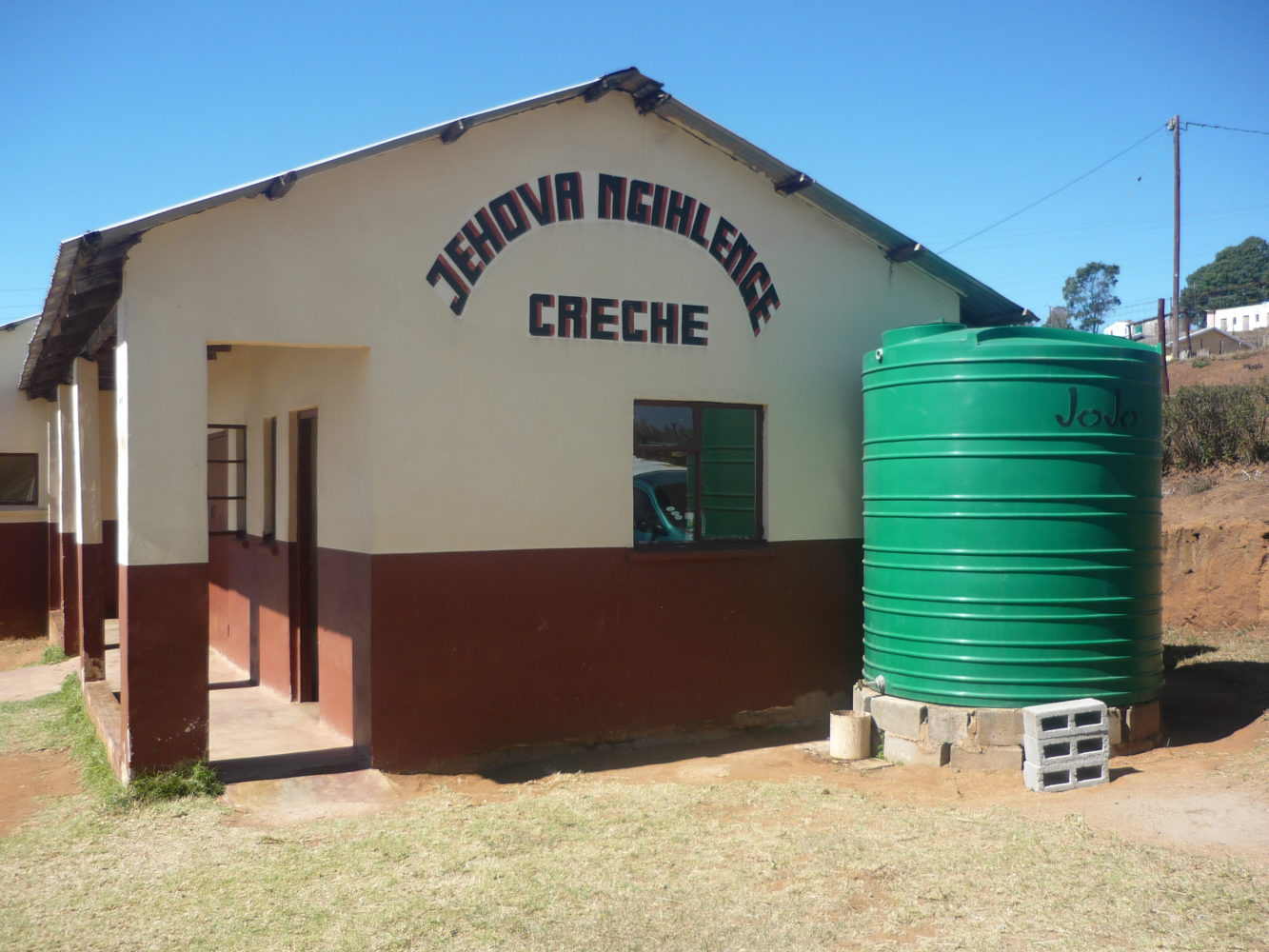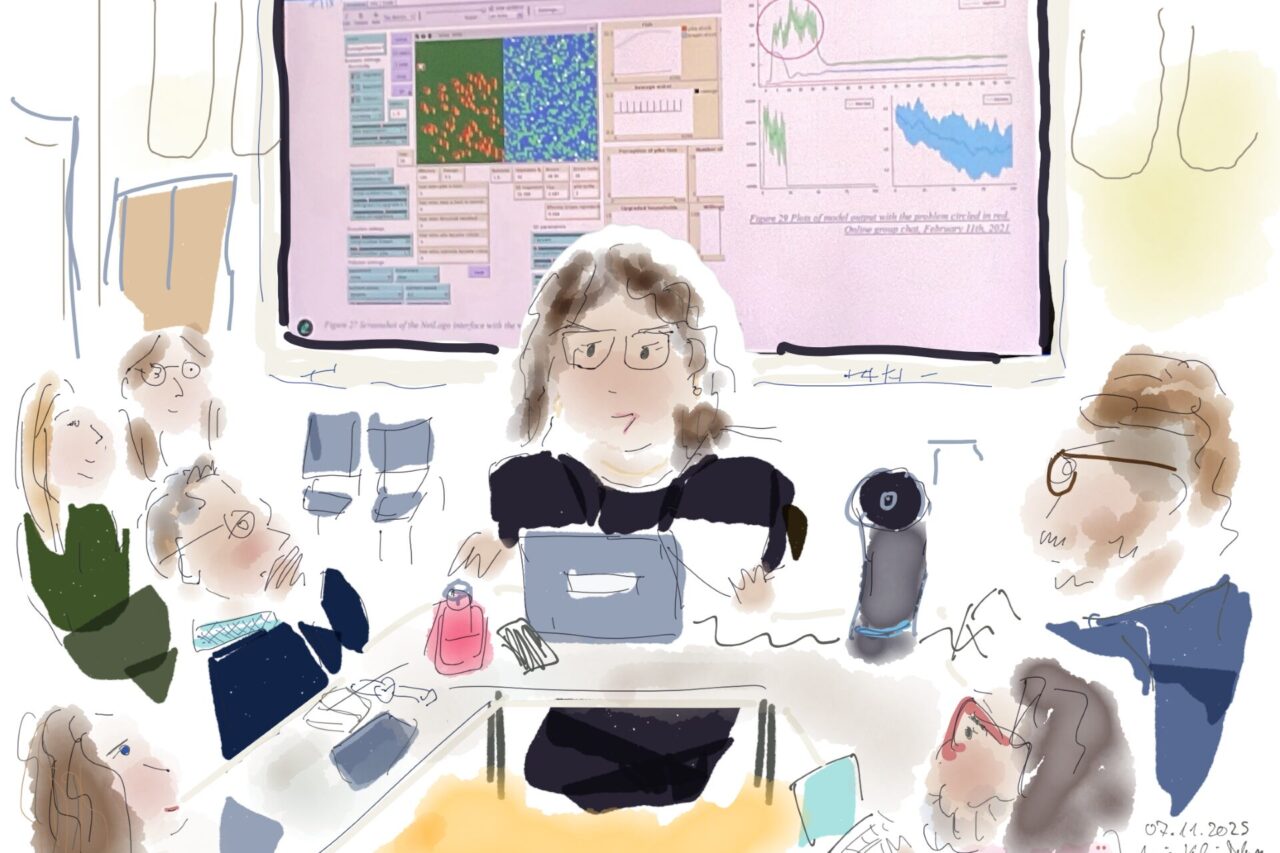
THESys Doctoral Researcher Karen Lebek recently published the third paper of her dissertation in the International Journal of Water Resources Development, together with Tobias Krueger. The authors explore determining factors for makeshift and conventional rainwater harvesting in rural South Africa and implications of the rainwater harvesting mode for household water insecurity.
Abstract
In underserved rural areas, domestic rainwater harvesting has been gaining importance as an alternative water source. In rural South Africa, however, less than 1% of households use conventional rainwater harvesting systems. Instead, a household survey in KwaZulu-Natal reveals that many households harvest rainwater in a makeshift manner, using homemade gutters and drums. Statistical analysis shows that high income, a brick house with straight gutters and good water services facilitate conventional rainwater harvesting, while a household with only round huts is easily trapped into makeshift rainwater harvesting. For upscaling rainwater harvesting in rural areas, housing types need to be considered.
Publication
Karen Lebek & Tobias Krueger (2021) Conventional and makeshift rainwater harvesting in rural South Africa: exploring determinants for rainwater harvesting mode, International Journal of Water Resources Development, DOI: 10.1080/07900627.2021.1983778







